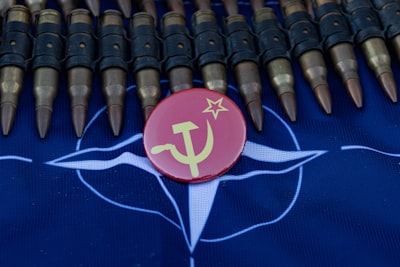Introduction
In recent years, the effectiveness of U.S.-imposed sanctions on China’s military imports has become a hot topic for analysts, governments, and the public. There is a growing sentiment, both in policy circles and internet forums, that sanctions cannot stop China from importing military technology—and may even solidify the strategic partnership between China and Russia. This article examines why American sanctions are falling short, how the China-Russia military relationship is evolving, and what global implications this trend might have.
Why Are U.S. Sanctions on Chinese Military Imports Failing?
- Diversification of Import Sources: China has built a robust network of arms suppliers beyond the West, relying heavily on Russia and, increasingly, on domestic R&D and joint ventures with alternative states.
- Resilience Through Self-Reliance: Major investment in domestic defense industries makes China less vulnerable to foreign pressure. Key sectors like avionics, cyberwarfare, and missile technology are advancing rapidly within China’s borders.
- Strategic Loopholes: Many sanctioned technologies find their way into China via third-country intermediaries and shell companies, circumventing direct restrictions.
- Global Geopolitics: Sanctions can drive countries like China and Russia closer together, encouraging the sharing of sensitive technologies and joint military projects.
The Deepening China-Russia Military Partnership
What’s Driving the China-Russia Arms Relationship?
- Shared Opposition to Western Pressure: Both nations feel threatened by expanding NATO influence and U.S.-led alliances in their regions.
- Complementary Needs: China provides capital and vast markets; Russia offers cutting-edge defense technologies and operational experience.
- Symbolic Military Cooperation: Joint exercises and technology transfers send clear messages to the U.S. and its allies about the limits of Western influence.
Key Sectors of Collaboration
- Aerospace & Air Defense: China has acquired advanced fighter jets and missile systems from Russia, supplementing rapid domestic development.
- Naval Power: Submarine and surface-vessel technology exchanges are modernizing both countries’ fleets.
- Cyber and Electronic Warfare: Joint research on information warfare and electronic intelligence strengthens mutual defense.
What Are the Global Implications?
- Arms Race Intensification: Other regional actors may boost their own defense spending, driven by a perceived China-Russia military threat.
- Fragmentation of Global Trade: As sanctions push China and Russia to alternative financial and trade systems, global supply chains could shift.
- Challenging Western Norms: Joint China-Russia diplomacy in the United Nations often stymies Western resolutions, impacting global governance on arms control and security.
FAQ
Q1: Can the U.S. impose harsher sanctions to curb China’s military imports? A: While possible, harsher sanctions risk broader global economic disruption and deepening the China-Russia alliance.
Q2: Is China completely independent in military tech now? A: Not entirely, but China is rapidly closing gaps across all key defense sectors.
Q3: Will new technologies (AI, hypersonics) change this balance? A: Yes, future breakthroughs could tilt strategic balances further, but they also bring new risks of escalation and technology races.
Conclusion
The persistence of China’s military imports in the face of U.S. sanctions—and the strengthening China-Russia military relationship—highlight the complexities of using economic tools to shape security outcomes in a multipolar world. As Washington considers its next moves, the global landscape is shifting in ways few anticipated.
This article was inspired by the headline: '让美国失望了 制裁难阻中国进口军备会引中俄反抗'.

Comments
No comments yet. Be the first to comment!